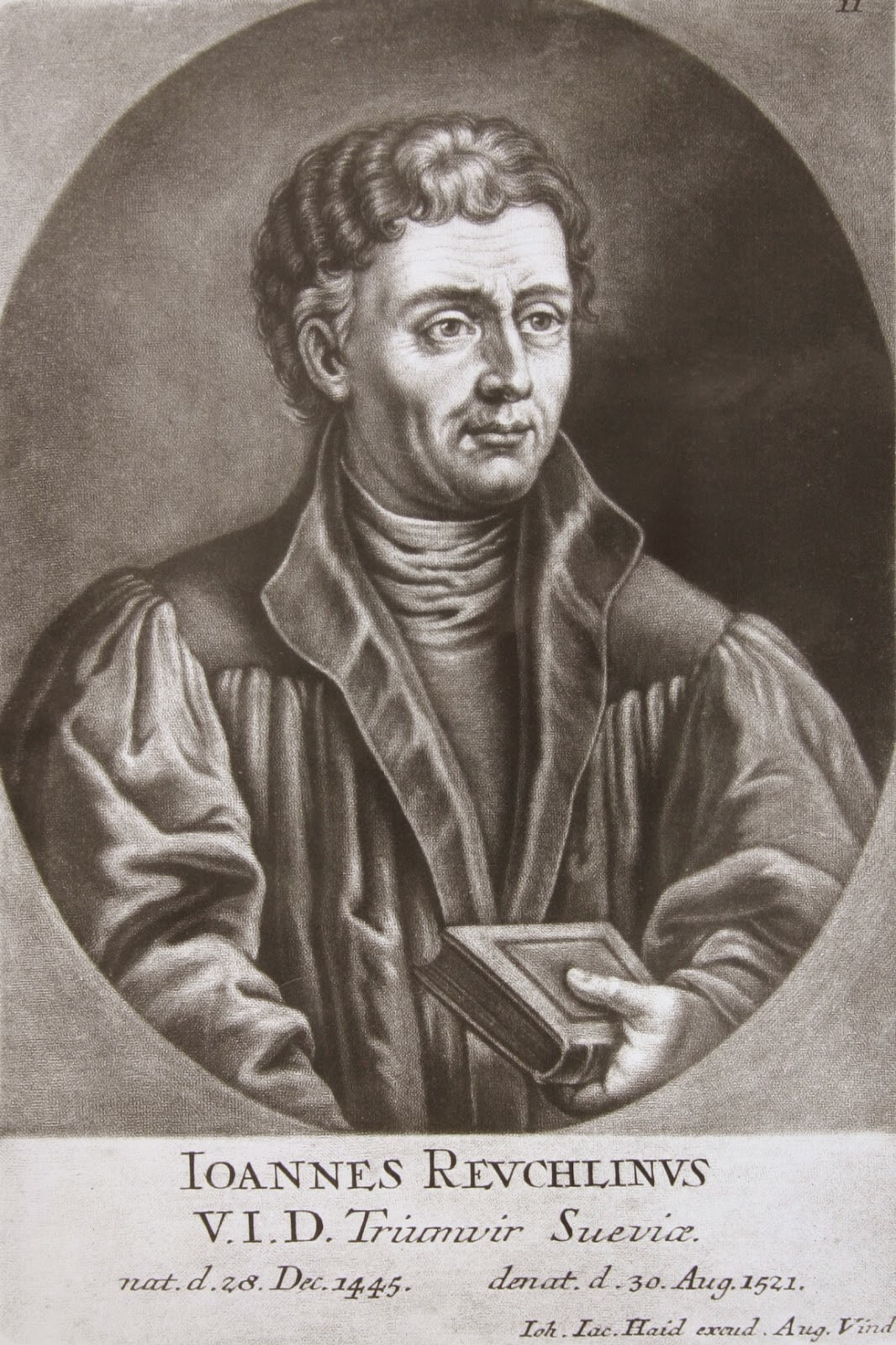Johannes Reuchlin

n 1492, Johannes Reuchlin, a German Humanist and Hebrew scholar, purchased a copy of the printed Masoretic Hebrew Bible in Rome for 6 gold coins, a year’s salary at the time. Then in 1506, Reuchlin published his De Rudimentis Hebraicis, On the Fundamentals of Hebrew, a Hebrew grammar and Lexicon. Reuchlin devoted his life to teaching the Word of God and made it possible for others to learn the Hebrew language and study the Bible for themselves. Reuchlin, along with Erasmus were declared the greatest men of the age. Perhaps, one of Reuchlin’s greatest achievements, along with the advancement of the Hebrew language, was the mentorship to his nephew, Philip Melanchthon. When Melanchthon was 10 years old, in the year 1507, his father died, and his grandfather raised him. Not long after, Melanchthon’s grandfather passed away, and Philip, along with his brother lived with one of their relatives, the sister of Johannes Reuchlin, who resided in Pforzheim. It was in this town that Reuchlin saw the aptitude of knowledge that young Philip had. Pleased to see the rapid progress of science, math, and especially in the study of the Greek language, Reuchlin gave Melanchthon a Greek grammar and a Latin Bible (the Greek Bible had not been printed yet). It was these two books that would be the study of Melanchthon’s whole life, shaping and encouraging the young man into one of the great Reformers of the sixteenth century. Johannes Reuchlin, second only to Desiderius Erasmus, gave the world back its Hebrew language, and through his work, namely the defense, study, and preservation of Hebrew literature, Reuchlin helped awaken the intellectual forces in the years immediately preceding the Reformation. Next Chapter... The New Testament: The Word is Made Flesh |
